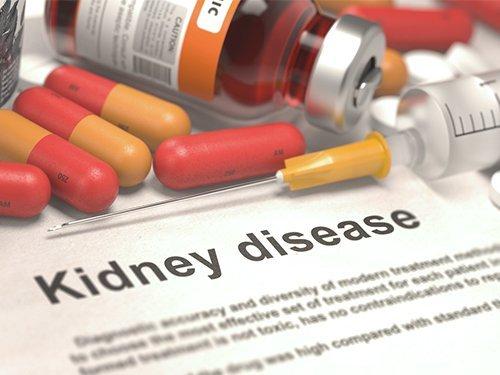
The kidneys play a vital role in filtering waste and toxins from the blood. Certain medications, when used excessively or improperly, can harm the kidneys and lead to severe complications. Below is a list of drugs known to cause kidney damage, along with precautions to minimize the risk.
1. Nonsteroidal Anti-Inflammatory Drugs (NSAIDs)
Examples
- Ibuprofen
- Naproxen
- Aspirin
Why They Harm
- Can reduce blood flow to the kidneys, causing acute kidney injury or long-term damage.
Precautions
- Avoid prolonged use.
- Use the lowest effective dose for the shortest time possible.
2. Antibiotics
Examples
- Vancomycin
- Gentamicin
- Amphotericin B
Why They Harm
- Can accumulate in the kidneys, causing toxicity and impaired function.
Precautions
- Use only under medical supervision.
- Stay hydrated to support kidney function.
3. Proton Pump Inhibitors (PPIs)
Examples
- Omeprazole
- Esomeprazole
- Pantoprazole
Why They Harm
- Linked to chronic kidney disease and acute interstitial nephritis.
Precautions
- Use for the shortest duration needed to manage acid reflux.
4. Diuretics
Examples
- Furosemide
- Hydrochlorothiazide
Why They Harm
- Can lead to dehydration and reduced kidney function over time.
Precautions
- Monitor electrolyte levels and fluid balance regularly.
5. Chemotherapy Drugs
Examples
- Cisplatin
- Methotrexate
Why They Harm
- May damage kidney cells while being processed and excreted.
Precautions
- Regular kidney function monitoring during treatment.
- Adequate hydration to flush out toxins.
6. ACE Inhibitors and ARBs
Examples
- Lisinopril
- Losartan
Why They Harm
- While they protect the kidneys in some cases (like diabetes), they may worsen function in patients with severe kidney disease.
Precautions
- Use only under medical advice.
- Monitor kidney function regularly.
7. Contrast Agents Used in Imaging
Examples
- Iodine-based contrast for CT scans
- Gadolinium for MRIs
Why They Harm
- Can cause contrast-induced nephropathy, especially in people with pre-existing kidney issues.
Precautions
- Inform the doctor about any kidney conditions before undergoing imaging.
8. Antiviral Drugs
Examples
- Acyclovir
- Tenofovir
Why They Harm
- Can form crystals in the kidneys, leading to blockage and damage.
Precautions
- Ensure proper hydration when using antiviral medications.
9. Statins
Examples
- Atorvastatin
- Simvastatin
Why They Harm
- Rarely, statins can cause rhabdomyolysis, which releases harmful substances into the kidneys.
Precautions
- Report any muscle pain or weakness to your doctor immediately.
10. Herbal Supplements
Examples
- Aristolochic acid (found in some weight loss or traditional medicine products)
Why They Harm
- May contain nephrotoxic compounds that harm kidney cells.
Precautions
- Avoid unregulated herbal supplements.
- Consult a healthcare provider before using herbal products.
Key Takeaways
- Medications can be harmful to the kidneys when used improperly or without supervision.
- Always follow the prescribed dosage and consult your doctor regarding potential risks.
- Stay hydrated and monitor kidney function if you're on medications known to affect the kidneys.
By being mindful of these drugs and their effects, you can protect your kidneys and maintain overall health.


.jpg)



0 Comments:
Post a Comment